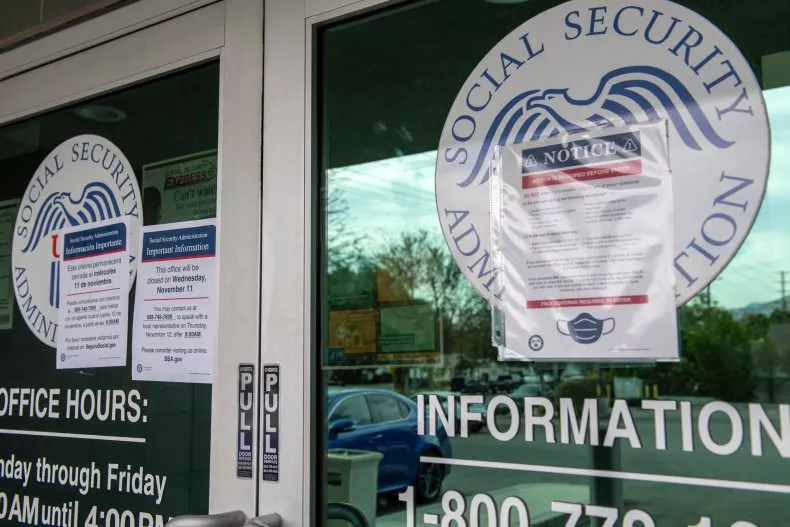Americans will see a $500 monthly cut to their Social Security payments by 2033 if nothing changes in the system’s financial condition.
Analysts have long been predicting that the Social Security system will become insolvent by the mid-2030s. This means that the social safety net program would be forced to start sending out significantly lower checks to beneficiaries.
The Social Security Administration has long faced a funding crisis as more baby boomers retire and fewer younger workers are in the population to pay into the system. Earlier this year, a trustees report said that Americans can expect Social Security benefits to drop by 21 percent in 2033 because of the continuing funding problem.
A new Motley Fool analysis showed the extent of the consequences.
Based on today’s average Social Security check of $1,918.28 for retired workers and using an estimated cost-of-living adjustment of 2.6 percent (based on the average COLA of the past 20 years), the average Social Security payment for seniors should be $2,416.79 in 2033.
But with a 21 percent reduction, that number would drop by $507.53 on a monthly basis. That means seniors on Social Security would lose roughly $6,090 every year in benefits.
“If nothing changes, there will need to be cuts to the current system,” Kevin Thompson, a finance expert and the founder and CEO of 9i Capital Group, told Newsweek. “People will likely take home a smaller portion of their current paycheck, which will be a significant concern for those living on fixed incomes.”
Since it was enacted in 1935, Social Security has supported Americans during their retirement years, as well as people with disabilities. In 2022, roughly 22.7 million people, including 16.5 seniors, were lifted out of poverty because of their Social Security benefits, according to the Center on Budget and Policy Priorities, a nonpartisan think tank.
Lawmakers have suggested several possible solutions to Social Security’s financial troubles, but few are politically popular. Democrats tend to call for higher taxes on the highest-earning Americans, while Republicans have suggested raising the full retirement age.

